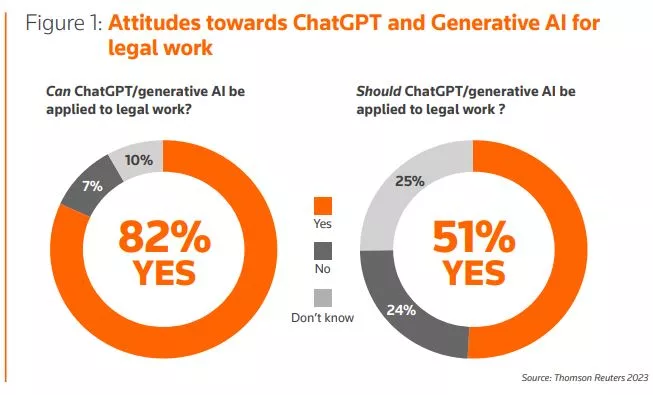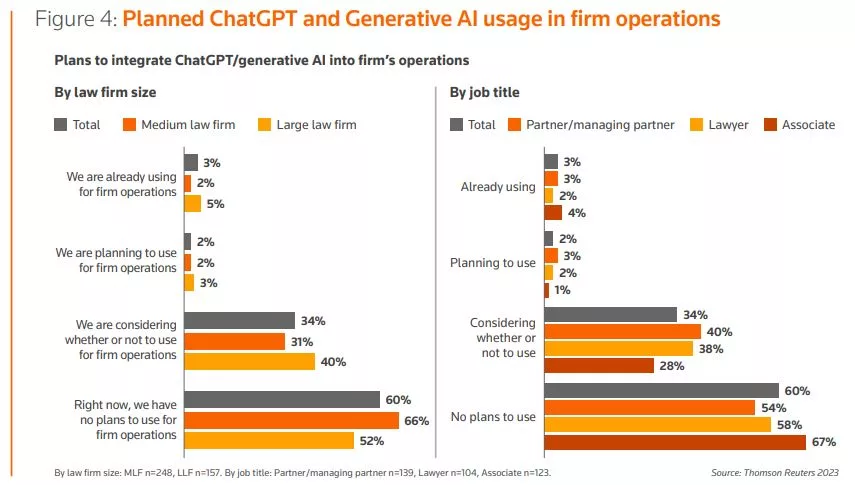We kicked off 2023 by predicting the top 5 legal topics people would be talking about this year… well, now that we’re over half way through the year, it’s time to look at where those predictions stand.
The original article predicted these 5 legal topics would take over headlines throughout 2023:
- Celebrity Cases & Entertainment Law
- The Intersection of AI and IP
- International Law
- Labor Law and Mergers & Acquisitions
- True Crime & Current Investigations
You can read why we predicted these would be the Top 5 Legal Topics of 2023 in the original article. Now that you’ve had a little refresher, let’s dive into whether these legal topics have really been taking over the headlines or if others stepped in to take their place.
1. Celebrity Cases & Entertainment Law

We predicted celebrity cases would take over the media this year. While there have been a few high profile legal battles, particularly involving musical artists like Kesha, Ed Sheeran, and Katy Perry, the most unprecedented legal battle involves Former President Donald Trump. While an indictment like this would typically fall into a crimial law category, Former President Trump does have years in the celebrity world.
The legal issues involved are fascinating from a jurisprudence perspective with complex matters that involve multiple jurisdictions, privilege exceptions, confidential information, evidence acquired through unique sources, and the first case of its kind. Although Former President Trump hasn’t been arrested, nor would he be the first president to be arrested (that title goes to Ulysses S. Grant), he is the first president to face criminal charges, making these cases some of the most high profile and most prominent in the media.
Read more about the case and what could be the most famous crime-fraud privilege exception here.
2. The Intersection of AI and IP
After the release of ChatGPT, the use of artificial intelligence not only took off within the IP sector, it also took off as a tool for legal research and writing faster than almost any tech within the legal industry. Thomson Reuters recently surveyed law firms in the US, Canada, and the UK about the potential use of generative AI within legal practices. While 82% said that AI can be applied to legal work, only 51% thought it should be used within legal work. The 30+% difference between can and should mostly stems from potential risks of producing incorrect or invalid information as well as confidentiality concerns for clients.

The risk factors of incorporating AI into the legal industry have already been confirmed by a judge that recently fined a pair of lawyers $5,000 when they submitted fictitious legal research to the court during an aviation injury claim. The lawyers quickly admitted to using ChatCPT for their legal research, and the judge acknowledged that with new technologies come potential for errors. However, Judge Castel also said that attorneys act as the final gatekeepers to ensure accurate filings.
While this $5,000 fine may be enough to deter law firms from implementing AI (10% of large law firms expressly ban the use of generative AI), 39% of law firms are currently using AI, plan to use it, or are considering using it for firm operations.

We expect ChatGPT and Generative AI to have a continued presence in legal news as more and more law firms implement this new technology. You can read the complete Thomson Reuters report here.
3. International Law
International law continues to develop as the global economy becomes more intertwined. That being said, we finally have an answer on what seems like a long and slow exit from the European Union by the United Kingdom. The EU’s highest court ruled that UK citizens are not eligible for benefits from the EU. This decision resolved several challenges brought by UK and EU citizens over the past several years, indicating this is likely the final chapter of the Brexit controversy.
You can read more about Brexit and the ruling here.
4. Labor Law and Mergers & Acquisitions

We predicted labor law, especially as it applies to M&A, would be one of the hottest topics of 2023. While there have been some large acquisitions like IBM’s $4.6 billion purchase of Apptio, most of the news regarding labor law has focused on new state and federal laws aimed to protect employees.
Many of the state law changes involve minimum wage increases. New York enacted a new bill that would gradually increase minimum wage from $15/hour for most employees to $17/hour by 2026. New York is just one of 28 states that have raised their minimum wages or plan to do so by the end of 2023.
Another hot topic within labor law involves a legislative push to close the gender gap when it comes to salary, career opportunities, and pay transparency. We wrapped up last year, discussing the treatment of women in law and the large gaps that still exist within law firms. This continues to be a hot topic within the legal field, and there continues to be a push to shrink the gender gap though various laws, such as pay transparency and the PWFA.
Pay transparency laws aim to provide all potential job candidates with an accurate salary range so that people of all backgrounds know exactly what they’re getting into when they start the interview process. So far, 8 states have enacted pay transparency laws while even more are considering it.
In addition to these states’ efforts to create a more equal recruiting experience, the Pregnant Workers Fairness Act took effect on June 27, 2023. This federal law expands protections to pregnant workers as a way to promote healthy pregnancies instead of putting workers in a position to choose between a healthy pregnancy and a paycheck.
Labor law is evolving at a rapid pace and varies between states, which poses a unique challenge for employers that have employees working in a remote capacity. If you’re an employer navigating the new labor law landscape, you can find an experienced Labor & Employment attorney here.
5. True Crime & Current Investigations
True crime continues to be one of the most consumed forms of entertainment in 2023, especially with shows like Max’s Love and Death or Netflix’s Murdaugh Murders. That being said, the entanglement between true crime and current investigations has slowed down (or at least the media coverage of it has decreased).
In reality, the effects of true crime on current investigations haven’t been one of the top legal topics of the year. Instead, cybersecurity and cryptocurrency have continued to be a top story for media outlets.
6. Cybersecurity and Cryptocurrency

Cybersecurity and cryptocurrency aren’t exactly the same topic, but they do both fall into the tech-forward side of law that’s seen some massive changes in regulation over the last year.
States and countries have been increasing their privacy and cybersecurity regulation throughout the year, including the US releasing its cybersecurity plan in the spring of 2023. In today’s digital world, staying up to date with privacy and cybersecurity laws is critical as people from around the world can easily access any business’s website. This requires most businesses to follow different states’ and countries’ privacy laws regardless of their intentions to be a global business.
Similarly, cryptocurrencies are facing additional regulation. While some may see this as a sign that cryptocurrencies won’t last, most of the people in the industry believe this further legitimizes crypto. Practus partner, Leslie Katz, recently co-authored an article about the future of cryptocurrency that’s worth reading for additional insights.
This year has proven to be interesting and fast-paced when it comes to legal news and developments in the law. We expect these legal topics will continue to keep us on our toes for the second half of the year as more laws are enacted.
At Practus, we’re proud to have attorneys across many of these practice areas so we can stay up to date on the latest developments. If these are the types of legal issues you want to be involved with in your practice, or if you are interested in joining our growing team of attorneys, please reach out to me or visit our website to learn more.






